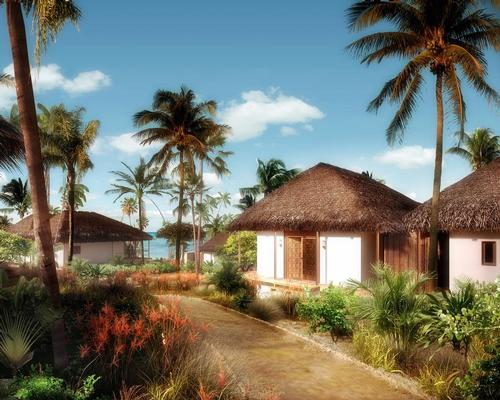12 Nov 2015
Jestico + Whiles reveal ultra-sustainable design for five-star African island resort
BY Kim Megson

The architects behind a remote five-star hotel resort in Zanzibar have told CLAD how they are pushing sustainability to its limits on the project.
Jestico + Whiles have been tasked by Czech developer RSJ Private Equity with creating Zuri Zanzibar; a hotel and wellness retreat on the African island which will stand out for its positive environmental, social and economic impact.
“The whole concept behind the project reflects an ethos of doing things ethically and creating an authentic experience of Zanzibar,” said Sean Clifton, the project’s lead architect. “It’s been a great opportunity for us to find the best way of building something sustainable in such a stunning but sensitive location.”
The US$28m (€26m, £18.4m) project will feature 60 individual cabanas for guests and five larger villas, together with restaurants, bars and space dedicated to health and wellness activities – including meditation and yoga. The whole site will cover 140,000sq m (1,500,000sq ft).
A vast spice garden will provide indigenous and fragrant spices for the restaurant, and oils and cosmetics for the resort’s massage therapies. Recycled wastewater and harvested rainwater will irrigate the garden in dry spells and solids will be used as compost; just one of a number of environmentally sustainable aspects incorporated into Jestico + Whiles’ design.
A supply of clean, fresh drinking water to the island will come from three new wells pumping salty seawater into a desalination plant, courtesy of a groundbreaking system provided by German company Výzkumný Technologický Institut.
“This is really innovative technology and this’ll be one of the first uses of it in a big way,” said Clifton. “Usually chemicals have to be added to provide the nutrition, but we’re using a completely non-chemical process which doesn’t kill the water. It’ll be like mineral water which we can use for the hotel. We’ll also bottle it and give it to the locals, who usually have to drink salt water.”
Zanzibar receives sunshine all-year-round, and solar power will heat and fuel the resort and surrounding homes; replacing traditional diesel generators. Shade and the sea breeze will create a natural ventilation system within the hotel interiors when cool air is required.
“The project will be also be sustainable in terms of providing local employment and bringing back traditional building skills that have nearly been lost,” Clifton told CLAD. “We’ve really engaged with the site, the people, the architects and the materials that exist there to go for something very authentically local, but still at a five-star level.”
References to the island’s heritage and craftsmanship will be incorporated through African design features such as Omani doors and balconies, traditional coconut thatch roofs and coral stone structures.
Terra Firma Africa – which specialises in remote area construction – is the project’s main contractor. A tender process is underway to find an interior design team for the project.
Clifton said the project should be completed by 2017.
Close Window